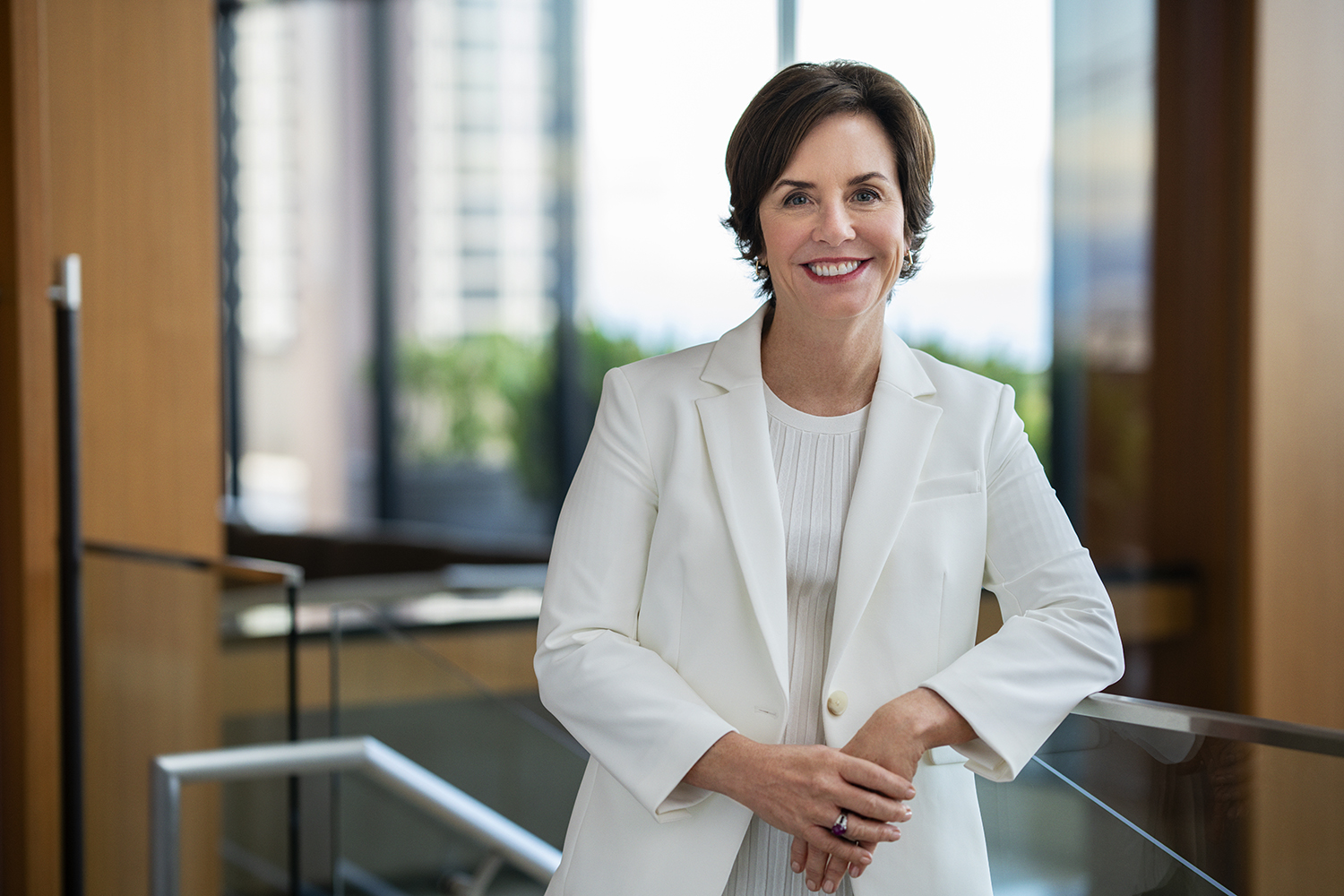My Best Investment Advice
These are the three steps to investing success: start soon, start small and keep it simple.


Profit and prosper with the best of Kiplinger's advice on investing, taxes, retirement, personal finance and much more. Delivered daily. Enter your email in the box and click Sign Me Up.
You are now subscribed
Your newsletter sign-up was successful
Want to add more newsletters?

Delivered daily
Kiplinger Today
Profit and prosper with the best of Kiplinger's advice on investing, taxes, retirement, personal finance and much more delivered daily. Smart money moves start here.

Sent five days a week
Kiplinger A Step Ahead
Get practical help to make better financial decisions in your everyday life, from spending to savings on top deals.

Delivered daily
Kiplinger Closing Bell
Get today's biggest financial and investing headlines delivered to your inbox every day the U.S. stock market is open.

Sent twice a week
Kiplinger Adviser Intel
Financial pros across the country share best practices and fresh tactics to preserve and grow your wealth.

Delivered weekly
Kiplinger Tax Tips
Trim your federal and state tax bills with practical tax-planning and tax-cutting strategies.

Sent twice a week
Kiplinger Retirement Tips
Your twice-a-week guide to planning and enjoying a financially secure and richly rewarding retirement

Sent bimonthly.
Kiplinger Adviser Angle
Insights for advisers, wealth managers and other financial professionals.

Sent twice a week
Kiplinger Investing Weekly
Your twice-a-week roundup of promising stocks, funds, companies and industries you should consider, ones you should avoid, and why.

Sent weekly for six weeks
Kiplinger Invest for Retirement
Your step-by-step six-part series on how to invest for retirement, from devising a successful strategy to exactly which investments to choose.
As the author of this column, I’m frequently asked what advice I would give to women who are just starting out as investors. So this month I thought it would be useful to condense my top tips with a set of FAQs that crop up most often.
How do I know when I’ll have enough money to invest? It’s not the amount that counts. Successful investing hinges on just three steps: Start soon, start small, and keep it simple. It’s critical to start saving as soon as possible to take advantage of the power of compounding, which over time can have a bigger effect than how much you invest and where you put the money.
Consider the case of two young women, Teri and Toni. At age 25, Teri begins contributing $2,000 a year to an IRA. She makes annual contributions for 10 years and then stops. Toni, on the other hand, waits until age 35 to start funding an IRA but makes regular $2,000 contributions for the next 30 years. If they both earn an average annual return of 8% in the stock market, who will have more money at age 65? Incredibly, Teri—a stunning illustration of compound interest working its magic.
From just $107.88 $24.99 for Kiplinger Personal Finance
Become a smarter, better informed investor. Subscribe from just $107.88 $24.99, plus get up to 4 Special Issues

Sign up for Kiplinger’s Free Newsletters
Profit and prosper with the best of expert advice on investing, taxes, retirement, personal finance and more - straight to your e-mail.
Profit and prosper with the best of expert advice - straight to your e-mail.
How do I know where to invest? That’s where “keep it simple” comes in. You can own shares in the entire U.S. stock market with a single investment in Vanguard’s Total Stock Market Index fund (VTSMX). If you also invest in Vanguard’s Total International Stock Index fund (VGTSX), you can literally own the world. Funds like these also make sense as core, long-term holdings for experienced investors. You can branch out into other investments as your interest and comfort level grow.
Another option is to invest in a single target-date fund, which is designed to divvy up assets among bonds as well as stocks in an age-appropriate mix until you need the money at some date in the future—usually at retirement. You’re likely to have access to a target-date fund through your retirement plan at work. Kiplinger’s likes target funds managed by Fidelity, T. Rowe Price and Vanguard.
But I never have any money left at the end of the month to save, let alone invest. No matter how much you make, it always seems to disappear by the end of the month. Which is why I’ll add step number four: Invest steadily by having money taken right off the top of each paycheck. You can do that with an automatic contribution to your retirement account, or with a regular deposit to a bank account for a short-term goal, such as next year’s vacation. You can’t spend it if you don’t see it.
How do I balance saving for retirement with saving for my kids’ college education? Retirement should always come first, especially for women, who tend to amass less in savings than men over the course of their careers. If you have a limited amount to devote to savings, your top priorities should be to build an emergency fund—aim to cover six to 12 months of expenses—and to put at least enough money into a retirement account to take advantage of any employer match.
Can’t do that right away? Start smaller and work up to it. Once you have an emergency cushion, you can shift those payments to college savings. And don’t be afraid to tap the grandparents. Instead of letting them shower your kids with stuff, encourage them to open state-sponsored 529 college-savings accounts, for which they’re also likely to get a state tax break. (My husband and I are funding 529 accounts for all three of our grandchildren.)
What are some saving and investing strategies that have worked for you? I never skipped a contribution to my 401(k) account, even when the stock market tanked during the financial crisis a decade ago. Outside of my retirement savings, I’ve made automatic monthly investments in a total market index fund. And having cash in an online bank paying 1.9% helps me sleep at night.
Profit and prosper with the best of Kiplinger's advice on investing, taxes, retirement, personal finance and much more. Delivered daily. Enter your email in the box and click Sign Me Up.

Janet Bodnar is editor-at-large of Kiplinger's Personal Finance, a position she assumed after retiring as editor of the magazine after eight years at the helm. She is a nationally recognized expert on the subjects of women and money, children's and family finances, and financial literacy. She is the author of two books, Money Smart Women and Raising Money Smart Kids. As editor-at-large, she writes two popular columns for Kiplinger, "Money Smart Women" and "Living in Retirement." Bodnar is a graduate of St. Bonaventure University and is a member of its Board of Trustees. She received her master's degree from Columbia University, where she was also a Knight-Bagehot Fellow in Business and Economics Journalism.
-
 The Cost of Leaving Your Money in a Low-Rate Account
The Cost of Leaving Your Money in a Low-Rate AccountWhy parking your cash in low-yield accounts could be costing you, and smarter alternatives that preserve liquidity while boosting returns.
-
 I want to sell our beach house to retire now, but my wife wants to keep it.
I want to sell our beach house to retire now, but my wife wants to keep it.I want to sell the $610K vacation home and retire now, but my wife envisions a beach retirement in 8 years. We asked financial advisers to weigh in.
-
 How to Add a Pet Trust to Your Estate Plan
How to Add a Pet Trust to Your Estate PlanAdding a pet trust to your estate plan can ensure your pets are properly looked after when you're no longer able to care for them. This is how to go about it.
-
 My Four Pieces of Advice for Women Anxious About Handling Money
My Four Pieces of Advice for Women Anxious About Handling MoneyTalking about money can help you take control of your finances.
-
 Readers Share Tips for Raising Money Smart Kids
Readers Share Tips for Raising Money Smart KidsRaising Money-Smart Kids What's the right age for a child to have their own credit card? Opinions vary.
-
 Estate Planning Got You Down? Start With a Will
Estate Planning Got You Down? Start With a WillFinancial Planning Estate planning may feel overwhelming. Start with a will and the rest will fall into place.
-
 A Talk With Carrie Schwab-Pomerantz
A Talk With Carrie Schwab-PomerantzWomen & Money Investing is the key to building a nest egg that will last a long lifetime, says Schwab-Pomerantz.
-
 Financial Planning and Investing: Women Closing the Confidence Gap
Financial Planning and Investing: Women Closing the Confidence GapWomen & Money Since the start of the pandemic, women have become more involved in their financial futures.
-
 A Salute to Money Smart Moms
A Salute to Money Smart Momssavings Today's mothers are in a perfect position to share their experiences in the workforce and as investors.
-
 Advice From Confident Investors
Advice From Confident Investorsinvesting Take advantage of publications, podcasts, adult ed classes and other resources, including family members.
-
 What Women Want in a Financial Adviser
What Women Want in a Financial AdviserFinancial Planning They’re put off by aggressive sales tactics and excessive jargon.